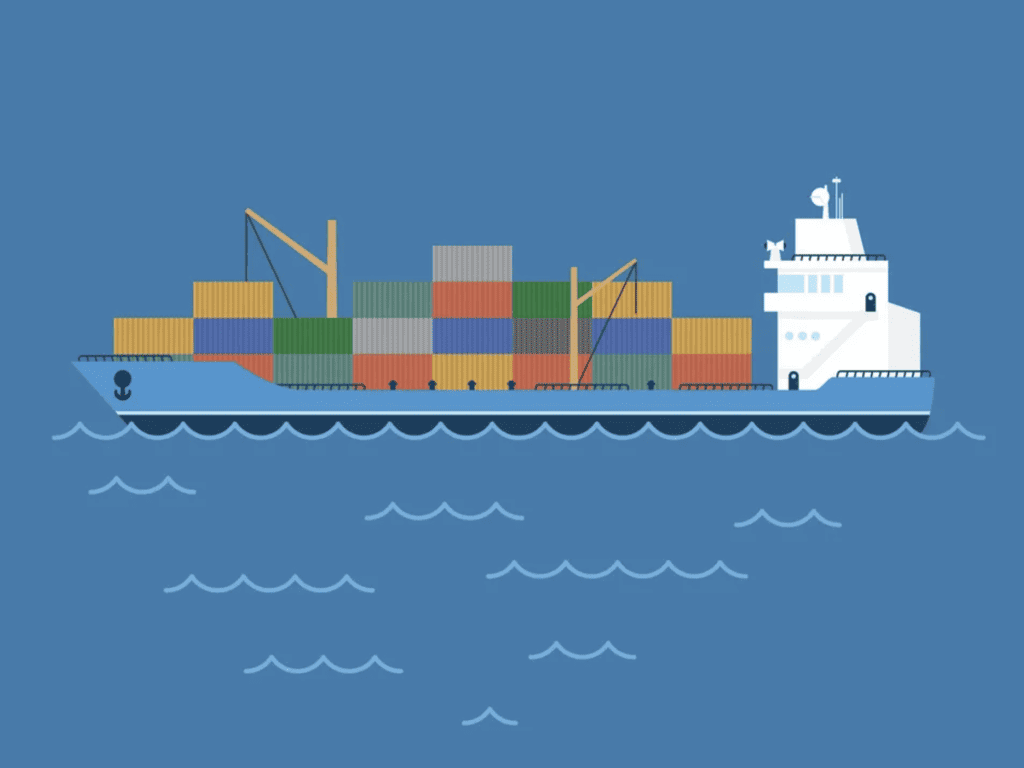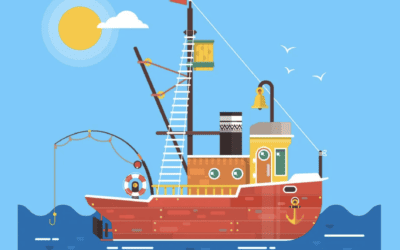Shipowner and Charterer Liability in Bangladesh in 2024
If cargo is damaged while on a cruise, the ship could be held accountable. Ship collisions, strandings, and groundings can all cause harm to cargo. When there is severe weather, the deck cargo could be lost. A fire on board may destroy the entire cargo. If there is an unusual delay in transit, the ship might also be held accountable for any harm done to perishable cargo. If the cargo is unloaded in a contaminated state, the ship might be held accountable. It also happens often that crew members mishandle their cargo, causing harm to it.
Claims for cargo might even arise in the absence of actual cargo loss or damage. This will occur when the ship misrepresents the amount, weight, and dimensions of the cargo on the documentation proving its shipping. Even though the shipper gave a complete description of the cargo, the ship would still be held accountable for any errors in the cargo manifest created by the ship’s agent at the load port.
If the products are not described accurately, the buyer will not be able to connect the goods at the port of discharge and will incur significant damages. Even though the recipient has paid the full invoice amount for the actual quantity carried, the ship may occasionally deliver less cargo than anticipated. This occurred as a result of an onboard computation error or the dumping of extra goods at a separate port.
It would be challenging to hold the ship accountable for cargo loss, though, given the intrinsic characteristics of the cargo, such as evaporation, condensation, spoiling from inadequate packaging, or improper cargo preservation on the part of the shipper. Furthermore not covered by the cargo policy is loss or damage to the goods because of its nature.
Shipowner and Charterer Liability

If a shipowner is held accountable for cargo damage under a carriage contract, he may also be liable. According to the Multi Modal Transportation of Goods Act of 1993, the Multimodal Transport Operator (MTO) has responsibility for any cargo loss or damage when a consignment is scheduled for transportation through MTO. A claim may be made against the carrier with whom the contract of carriage was completed or, in the event that the ship owner is not the carrier under the terms of the contract (i.e., the contractual carrier is a charterer or non-vessel owning carrier), against the ship owner in tort because of her negligence. However, as there is no contract of carriage between the non-carrying ship and the cargo, the claim must be brought in tort when it is made on the non-carrying vessel.
The terms and circumstances of the CP agreement will govern the Charterer’s liability when the commodities are transported under a charter party agreement. Determining whether legal action will be taken in tort or under a contract of carriage against the Carriers is crucial.
The shipowner’s defense will be in accordance with the conventions, which may be under the Hague/Hague Visby, Rotterdam, or Hamburg Rules, if the proceedings are started under a contract of carriage; but, if the case is in tort, the defense will not be covered by any of the conventions. Nonetheless, the carrier may rely on a unique provision such as the circular indemnity agreement or the Himalaya clause.
Accountability under the Agreement of the Charter Party
If the shipper has a direct contract for carriage with the shipping company, then the obligation against them will be in line with the Bills of Lading. The terms and conditions of the CP Agreement will apply to the Charterer’s liability when a vessel is chartered for shipping. Either the “Time” or the “Voyage” charter will serve as the common charter party agreement.
Time Table:
A time charter gives the charterer access to the ship for a predetermined period of time, such as six months or a year, from the owners. Since they do not own the cargo, the charterer is not able to file a claim in the event that the cargo is damaged while the vessel is being used. Cargo claims under the CP Agreement will be filed against the Charterer in the event that a time charter is executed on an indemnity basis. Under the rules of the charter party, either party may make claims against the other, depending on whether the carrier is the shipowner or the time charterer.
The Voyage Charter
When a voyage charter occurs, the person receiving the cargo may take on the role of the voyage charterer and purchase the items on FOB terms. Instead of being governed by the conditions of the bills of lading, the carriage agreement between the shipowner and the recipient of the commodities would be governed by journey charter. There would be no further claim under the bills of lading, and the claim, if any, would be made against the ship-owners in accordance with the CP Agreement. Only the bills of lading serve as evidence of the items’ reception in this case.
The cargo recipient does not charter the vessel when the commodities are purchased under CIF conditions. The seller will charter the ship, but the Bills of Lading, not the trip charter, will govern the carriage agreement between the ship owner and the recipient of the goods. As a result, the claim will first be filed under the bill of lading and then between the shipowner and the charterer.
Bills of Lading
When the items are loaded onto the ship, the master issues the bills of lading. Bills of lading serve as proof of the transport contract rather than being the actual contract itself. Two varieties of bills of lading exist:
- Subject to negotiation or order
- A bill of lading that cannot be altered
The name of the precise consignee or the recipient of the goods is not mentioned on the “Negotiable or To order” Bill of Lading. The notified party’s name, such as M/s ABC & Co., is stated along with the phrase “To order,” such as State Bank of India. The notify party may request that the title documents be released from the Banker in exchange for full payment of the invoice amount. The receiver can release the goods from the Shipping Company upon receiving the title papers. The title document is not transferable in cases where the bills of lading expressly state the consignee’s name. Only the owner of the title document may file a claim against the transportation firm.
The lesson to be learned from this narrative is,
When handling a maritime claim, the underwriters ought to go over the following:
- According to the Bill of Lading, who is the carrier?
- Who has gathered freight for the transportation of goods?
- What does the bill of lading contain as terms and conditions?
- How long do you have to file a lawsuit against the carrier?
- The jurisdiction, or the place where the lawsuit would be filed
The identity of the Carrier under the bill of lading must be ascertained in order to establish whether a tort or contract of carriage lawsuit will be brought.




0 Comments